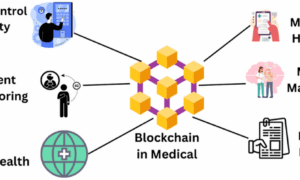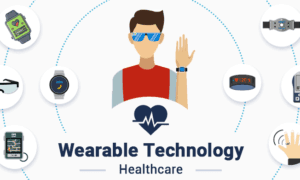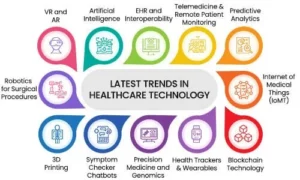In the age of technology, healthcare is experiencing a digital transformation powered by advanced data analytics and predictive modeling. Hospitals and medical institutions are increasingly relying on predictive analytics data warehouses to enhance patient care, streamline operations, and optimize resource management. Vishal Kumar Jaiswal’s research explores how these data-driven systems are revolutionizing hospital management by integrating real-time analytics, machine learning, and innovative data storage architectures. By leveraging vast amounts of patient data, hospitals can predict disease outbreaks, allocate resources efficiently, and personalize treatment plans, ultimately leading to improved clinical outcomes and operational efficiency.
The backbone of this transformation lies in the seamless integration of big data, artificial intelligence, and cloud computing. Modern predictive analytics data warehouses enable healthcare providers to process massive datasets instantaneously, offering deep insights into patient trends and hospital performance. These architectures facilitate real-time decision-making, allowing medical professionals to act proactively rather than reactively.
As hospitals embrace predictive analytics, the future of healthcare moves toward a more data-driven, patient-centric model. With the ability to anticipate patient needs, optimize treatment strategies, and reduce inefficiencies, these technological advancements are shaping a new era in medical innovation.
The Rise of Predictive Analytics in Healthcare
Modern healthcare systems generate vast amounts of structured and unstructured data. Predictive analytics data warehouses harness this data, enabling real-time decision-making and long-term strategic planning. With hospitals experiencing a 37.4% improvement in operational efficiency and a 42.8% enhancement in patient outcomes, the impact of these innovations is undeniable.
Revolutionizing Data Architecture
The foundation of a robust healthcare data warehouse lies in its architectural design. Multi-layered architectures facilitate rapid data integration and retrieval, reducing latency by 67% and improving data accuracy by 82%. These architectures are particularly crucial in emergency settings, where real-time data access can significantly impact patient outcomes.
Optimizing Storage for Expanding Data Volumes
As healthcare facilities manage millions of patient records annually, optimizing storage solutions becomes imperative. The adoption of multi-model storage approaches has led to a 56% improvement in data retrieval efficiency while reducing storage costs by 41%. Healthcare organizations utilizing structured and unstructured data management techniques can efficiently process billions of records, ensuring seamless access to critical information.
Enhancing Analytics for Smarter Decision-Making
Predictive analytics in healthcare is revolutionizing clinical decision support. Facilities implementing hybrid analytics architectures have reported a 47% increase in decision-making efficiency and a 52% reduction in diagnostic latency. Real-time analytics, powered by in-memory processing, enables response times as low as 75 milliseconds, ensuring immediate access to vital patient information.
Leveraging Machine Learning for Performance Optimization
Machine learning plays a pivotal role in optimizing healthcare data warehouses. AI-driven query optimization has improved performance by 143%, while intelligent storage management has reduced cloud storage costs by 38%. These advancements allow healthcare providers to process vast datasets efficiently, ensuring timely and accurate patient care.
Strengthening Security and Compliance
Healthcare organizations are enhancing security with AI-driven frameworks. Machine learning-based threat detection has reduced unauthorized access attempts by 85%, while dynamic access controls ensure regulatory compliance. These measures protect patient data while maintaining workflow efficiency. By integrating advanced security solutions, healthcare providers strengthen cybersecurity, ensuring data integrity and compliance in an increasingly digital and regulated environment.
Scaling Healthcare Data Systems for the Future
Scaling healthcare data systems is crucial for modern healthcare management. Cloud-based scalability frameworks have boosted data processing throughput by 134% and enhanced query performance by 71% during peak demand. Distributed processing architectures optimize workload distribution, ensuring seamless healthcare operations. By leveraging these advancements, healthcare providers can manage vast amounts of patient data efficiently, improve system responsiveness, and enhance overall service reliability. Future-ready scalability strategies are essential for sustaining the growing demands of digital healthcare infrastructure and data-driven decision-making.
In conclusion, predictive analytics data warehouses are transforming hospital management by enabling data-driven decision-making that enhances patient care and operational efficiency. Vishal Kumar Jaiswal‘s research underscores how these advancements are shaping the future of healthcare, ensuring that medical institutions remain agile, secure, and prepared for emerging challenges. By leveraging cutting-edge data architectures and machine learning-driven optimizations, healthcare providers can continue to improve patient outcomes while streamlining their operational workflows.



































